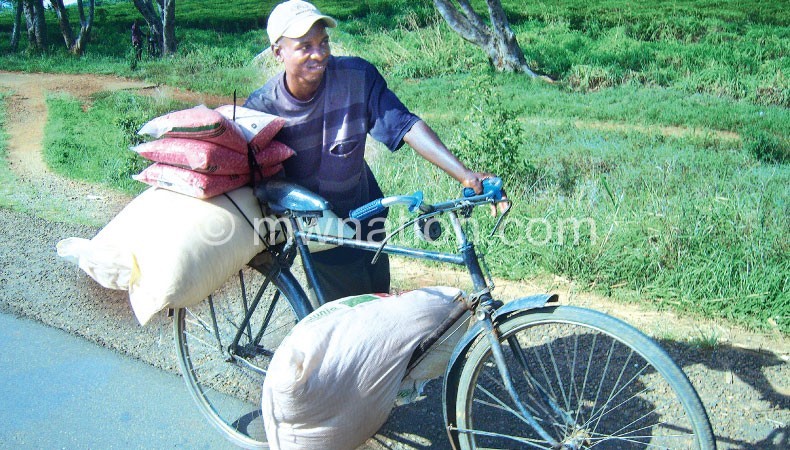Report exposes Fisp inefficiencies
Institutional inefficiencies along the Farm Input Subsidy Programme (Fisp) value chain have over the years affected the implementation of the subsidy programme in Malawi resulting in failure to achieve intended results.
This is the view of Civil Society Agriculture Network (CisaNet) contained in the latest Fisp Budget Tracking Report that covered the years between 2011 and 2015.

CisaNet argues that the inefficiencies have led financiers to incur rolling debts with suppliers.
Fisp has been implemented by the Government of Malawi since 2005/06 financial year.
In its five-year time implementation period, Fisp has managed to reach over 7.4 million households, with expenditure of over K251.3 billion.
Over the years, government has been playing a critical role in managing the programme with changes only taking place in the 2015/16 financial year in which 60 percent of private fertiliser companies have been involved in direct marketing of the commodity at community level.
Reads the report in part: “It has been shown that Fisp is important and enjoys the popularity with the farming community in Malawi. Despite its importance, government has been delaying its implementation to the extent that the intended benefit has not been achieved and also the cost of the programme has been building over time despite low or declining international input costs because of some other institutional inefficiency along the input value chain.
“These inefficiencies have rendered the financier to incur rolling debts with suppliers. Beneficiary targeting has been a perennial problem, but when government tried to change the system from open targeting to closed desk-based targeting, the challenges widened, proving that targeting process when people are concerned will always require their involvement no matter the problems.”
CisaNet has since called for institutional reforms in the Fisp programme line if it is to fully benefit Malawians.
In recent years, Fisp has come under fire from a cross-section of the society arguing that the programme does not give desired returns.
Chairperson of the Parliamentary Committee on Agriculture and Irrigation, Joseph Chidanti-Malunga, said in an interview on Tuesday that while it is difficult to quantify the targeted beneficiaries of Fisp, the programme is yet to yield intended results.
“We were supposed to get a bunch of people, maintain and monitor them to find out whether they are benefiting or not and we seem not to learn from past experiences to improve on the programme.
“But as we progress into the years, we are looking forward to the day when this programme will be phased out because I don’t think it is doing us any good, but wasting government resources,” he said.
Minister of Agriculture, Irrigation and Water Development George Chaponda is on record as having said while the focus will still be on the poorest of the poor in the new approach, government is trying to empower those farmers that have the capacity to grow maize beyond the subsistence level while focusing on irrigation farming.
In his paper titled “Political Economy of Agricultural Policy Processes in Malawi: A Case Study of the Fertiliser Subsidy Programme”, Chancellor College political science associate professor Blessings Chinsinga noted that the case of the fertiliser subsidy programme demonstrates that the prospects for expert-driven agricultural policy processes have to contend with the contextual political realities.





